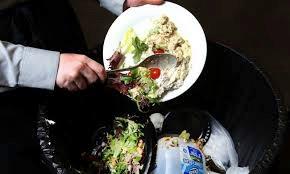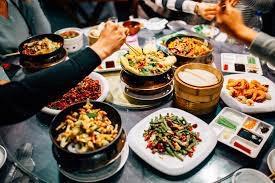 According to representatives of Rabobank in Shanghai, the Government of the People’s Republic of China has embarked on a program of combating food waste. With increasing urbanization, food service is responsible for a greater share of consumption. In an attempt to reverse tradition, restaurants have been urged to adopt an “N-1 policy” in which the number of dishes served is one less than the number of diners. Caterers and restaurants are also counseled to serve smaller portions contrary to tradition in China. This Clean Plate campaign is a specific initiative of Premier Xi Jinping who expressed his displeasure with food waste that he regards as “shocking and distressing”.
According to representatives of Rabobank in Shanghai, the Government of the People’s Republic of China has embarked on a program of combating food waste. With increasing urbanization, food service is responsible for a greater share of consumption. In an attempt to reverse tradition, restaurants have been urged to adopt an “N-1 policy” in which the number of dishes served is one less than the number of diners. Caterers and restaurants are also counseled to serve smaller portions contrary to tradition in China. This Clean Plate campaign is a specific initiative of Premier Xi Jinping who expressed his displeasure with food waste that he regards as “shocking and distressing”.

The need to prevent food waste was emphasized by disruption in supply chains as a result of the COVID pandemic and also extensive floods which reduced rice yield. With respect to national campaigns, the Government of China relies on a strong sense of unity and cultural conformity. The Government recognizes the need to increase the quantity and quality of food for 1.4 billion, representing 20 percent of the world’s population with agriculture operating under the restraints of limited acreage and resources.